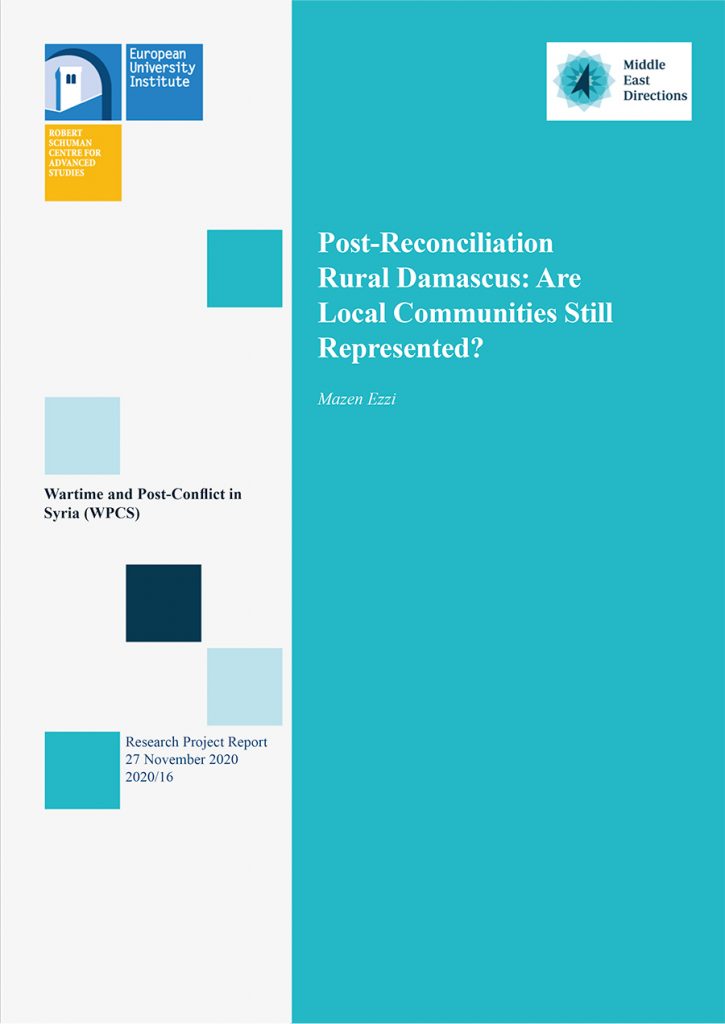Two years on from the Syrian regime’s military recapture of the entirety of Rural Damascus, the fates of influential local actors, including communal dignitaries, religious clerics, businessmen, civil society activists and military commanders, appear to vary from area to area depending on a range of factors. Analysis of these ramifications reveals three broadly distinct categories.
In areas that were subject to intense warfare ending in the forced displacement of most of the population backed by powerful foreign intervention, local communities have undergone severe trauma with their social fabric torn apart and their most prominent social actors lost. In areas that only witnessed partial displacement and limited external intervention, two categories can be identified: in areas where Sufi clerics took the lead during reconciliation processes, these influential actors maintained a presence afterwards, albeit with roles that steadily diminished over time; in areas where strong social and family networks were of great significance, some local community figures were able to retain their previous roles in the post-reconciliation phase.




